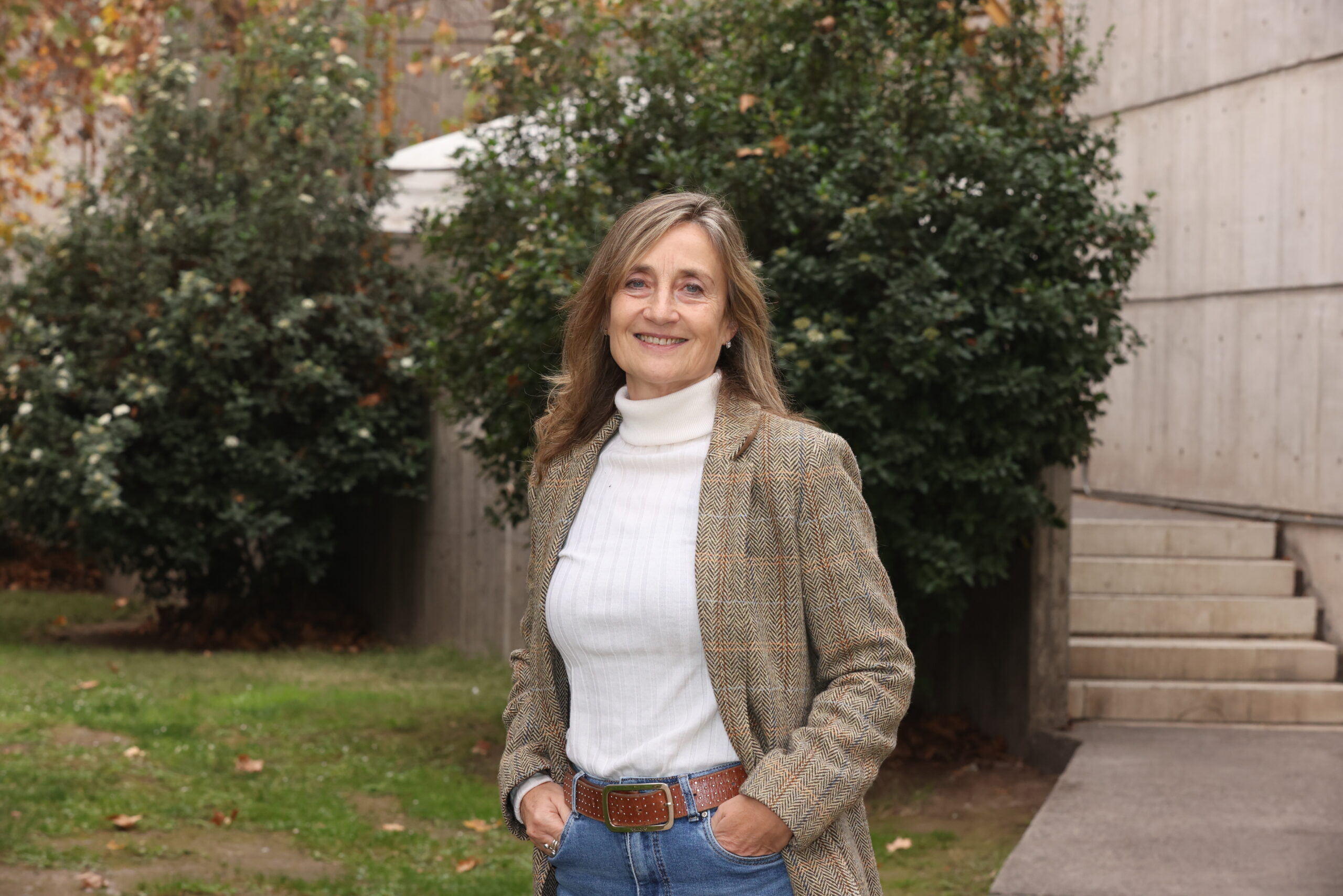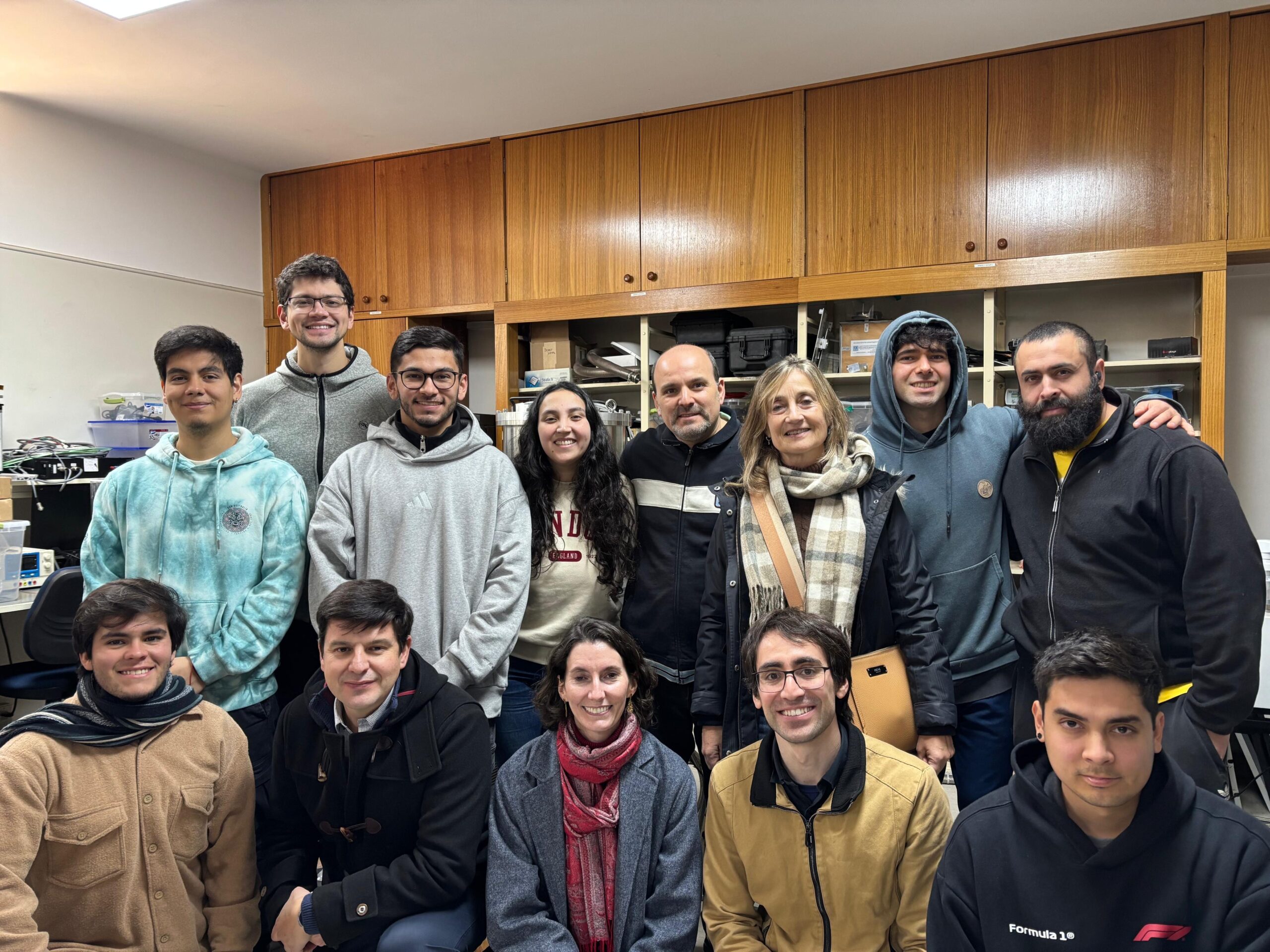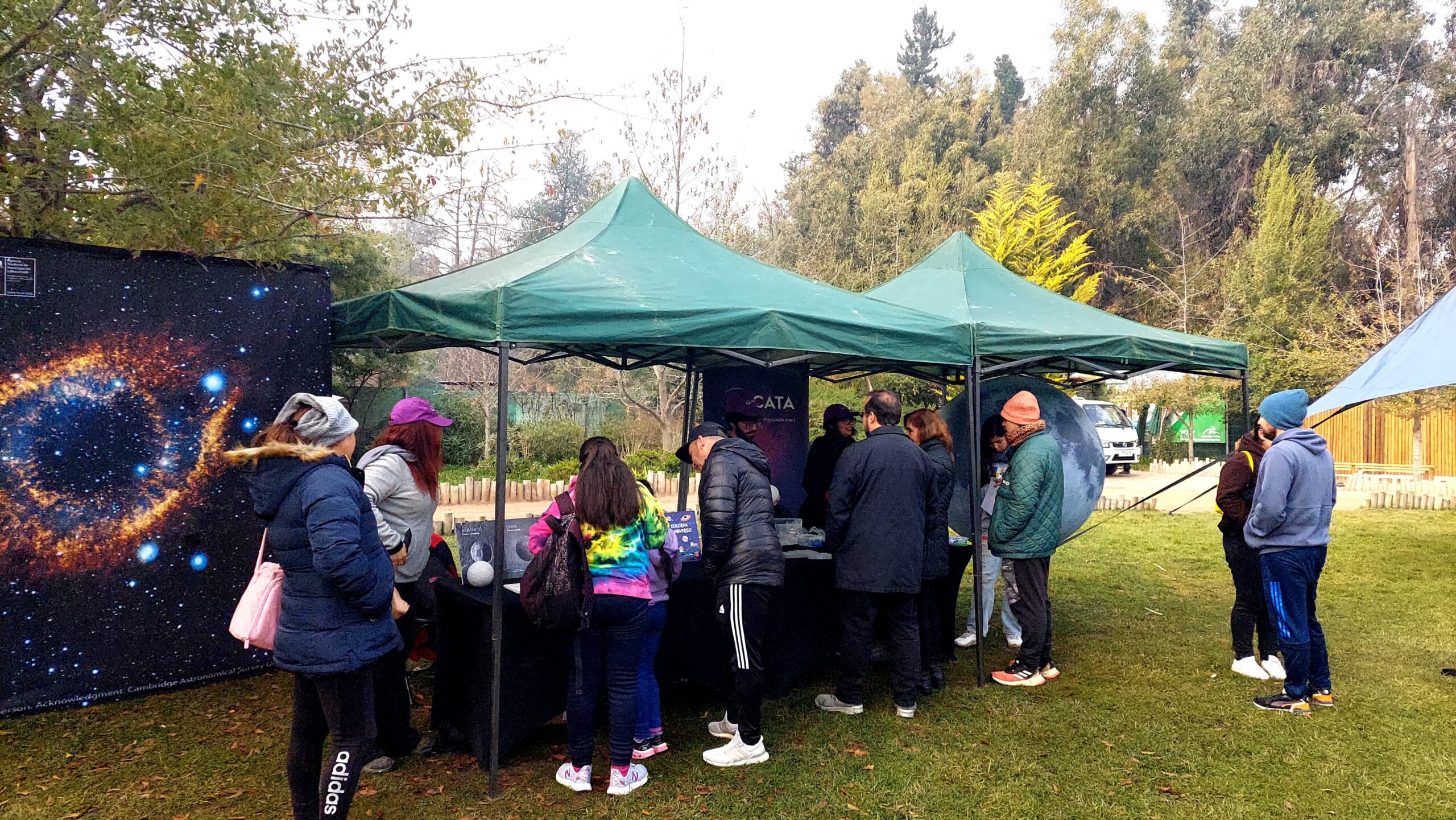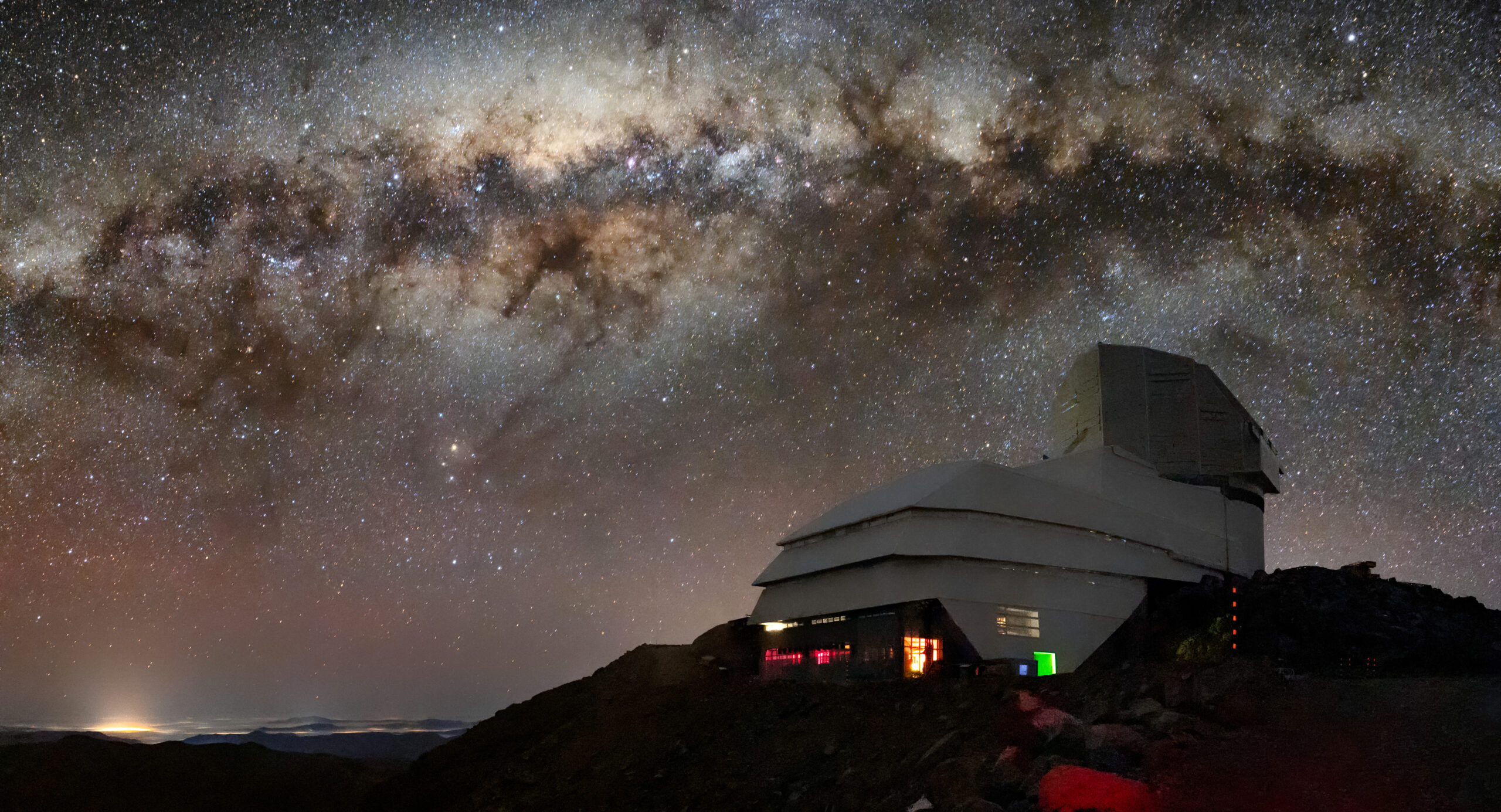Return

Chinese Academy of Sciences strengthens its relationship with UdeC in a visit to the Department of Astronomy.
On Friday, August 26, the researchers from the Asian giant met with the Vice Rector's Office for Research, academics and students, in addition to visiting the facilities of the WenuLafken observatory. This relationship is expected to promote the creation of a professional observing platform for the university and the rest of the country through the Leighton Chajnantor Telescope (LCT).
Franco López Flores
With the objective of getting to know the facilities of the Center for Astronomical Instrumentation (CePIA) and reaching agreements for technological development and cooperation, members of the Chinese Academy of Science South America Center for Astronomy (CASSACA), shared with students and academics in their visit to the Department of Astronomy of the UdeC.
On that occasion, the director of CASSACA, Zhong Wang, and the researchers, Lei Shu and Yuping Tang were received by the academics of the Department of Astronomy and members of the Center for Astrophysics and Related Technologies (CATA), Dr. Rodrigo Reeves Díaz and Dr. Dominik Schleicher, with whom they shared details about the research carried out between professors, undergraduate, and graduate students, thus seeking instances of mutual cooperation between Chile and the Asian country.
“Nosotros tenemos una larga historia de colaboraciones con el Departamento de Astronomía de la UdeC hace al menos 10 años. Estudiantes chinos que se prepararon en la UdeC ahora son profesores en China y viceversa, así que creemos que esta relación es de mutuo beneficio y, a pesar de las dificultades por la pandemia de Covid-19, nos alegra ver a nuestros amigos de la Universidad de Concepción”, declaró Zhong Wang.
“We have a long history of collaboration with the Department of Astronomy of UdeC for at least 10 years. Chinese students who prepared at UdeC are now professors in China and vice versa, so we believe that this relationship is mutually beneficial and, despite the difficulties due to the Covid-19 pandemic, we are glad to see our friends from the University of Concepción”, stated Zhong Wang.
For Professor Reeves, who is also director of CePIA, the importance of the meeting lies in the possibility of showing the development of various projects in which the Asian organization participates, one of which is the Leighton Chajnantor Telescope (LCT), which has just been disconnected in Hawaii while awaiting the disarmament process to arrive by sea to Chile.
“CASSACA has always supported our evolution as a laboratory. They were even interested in participating as interested counterpart in a FONDEF project, related to the development of water vapor radiometers for atmospheric characterization in observatories in the north of Chile; projects that are going well”, commented the UdeC academic.
Common challenges
The South American Astronomy Center considers that both China and Chile are lagging behind in the development of advanced instrumentation and observational techniques with respect to other astronomical powers. Therefore, one of the challenges in terms of cooperation is to continue the instances of mutual support and learning through the exchange of personnel and students, along with the development of projects such as the LCT.
“China in general and NAOC (Chinese National Astronomical Observatories) in particular are hosting students visiting research centers and universities. In addition, we are eager to be able to send more of our young students to work in Chile at places like the University of Concepción,” added the CASSACA director.
Finally, for the Department of Astronomy this relationship translates into an impact for the entire astronomical community, both academics, undergraduate, and graduate students of the career, since according to Professor Reeves: “by participating and supporting the LCT project is enabling a professional-level scientific observation platform, mainly for our Department, its professors, students, and postdocs, and then for the scientific use of national time shared with the national community so that Astro-UdeC would have priority access to the LCT infrastructure”.
Recent news
-
 Publicado el: 09/07/2025Patricia Tissera is recognized as full professor by the Pontificia Universidad Católica de Chile
Publicado el: 09/07/2025Patricia Tissera is recognized as full professor by the Pontificia Universidad Católica de Chile -
 Publicado el: 04/07/2025CATA researchers among the best in Chile according to international ranking Research.com
Publicado el: 04/07/2025CATA researchers among the best in Chile according to international ranking Research.com -
 Publicado el: 30/06/2025CATA Director strengthens ties in her second institutional tour
Publicado el: 30/06/2025CATA Director strengthens ties in her second institutional tour -
 Publicado el: 30/06/2025CATA celebrated Asteroid Day 2025 at the Pueblito de Las Vizcachas Park
Publicado el: 30/06/2025CATA celebrated Asteroid Day 2025 at the Pueblito de Las Vizcachas Park -
 Publicado el: 26/06/2025Vera C. Rubin: the telescope that watches the sky and anticipates the future of astronomy
Publicado el: 26/06/2025Vera C. Rubin: the telescope that watches the sky and anticipates the future of astronomy
Categories list
- Acknowledgments 20
- Astrobiology 5
- AstroCluster 1
- Black holes 13
- Corporativo 49
- Cosmology 4
- Descubrimientos 19
- Disclosure 46
- Exoplanets 13
- Extension 4
- Galaxies 17
- Galaxies formation 2
- Inter y Transdisciplina 2
- Local Universe 13
- Publications 5
- Sin categorizar 31
- Solar System 11
- Stellar formation 6
- Technology 9
- Technology Transfer 12


